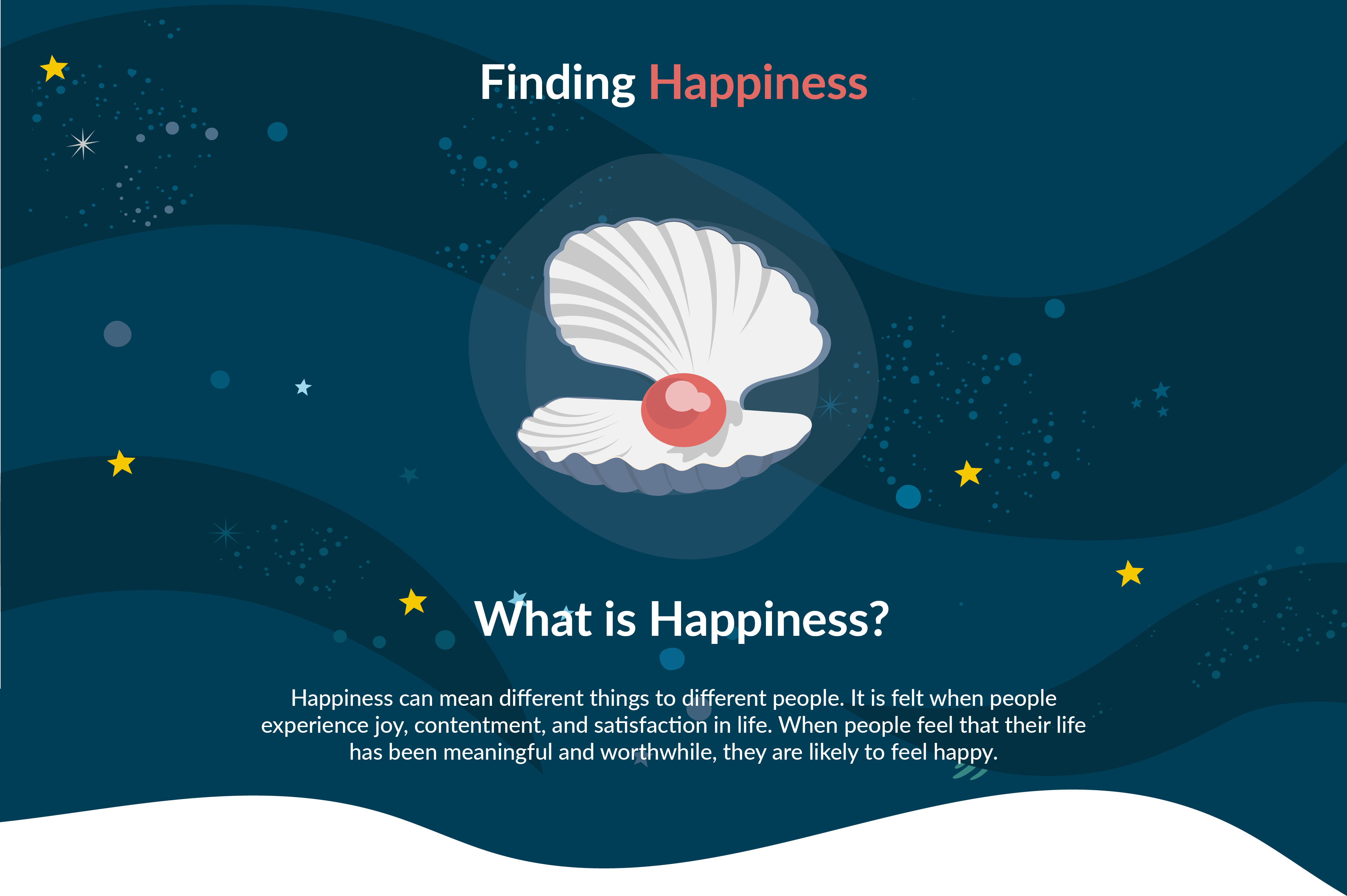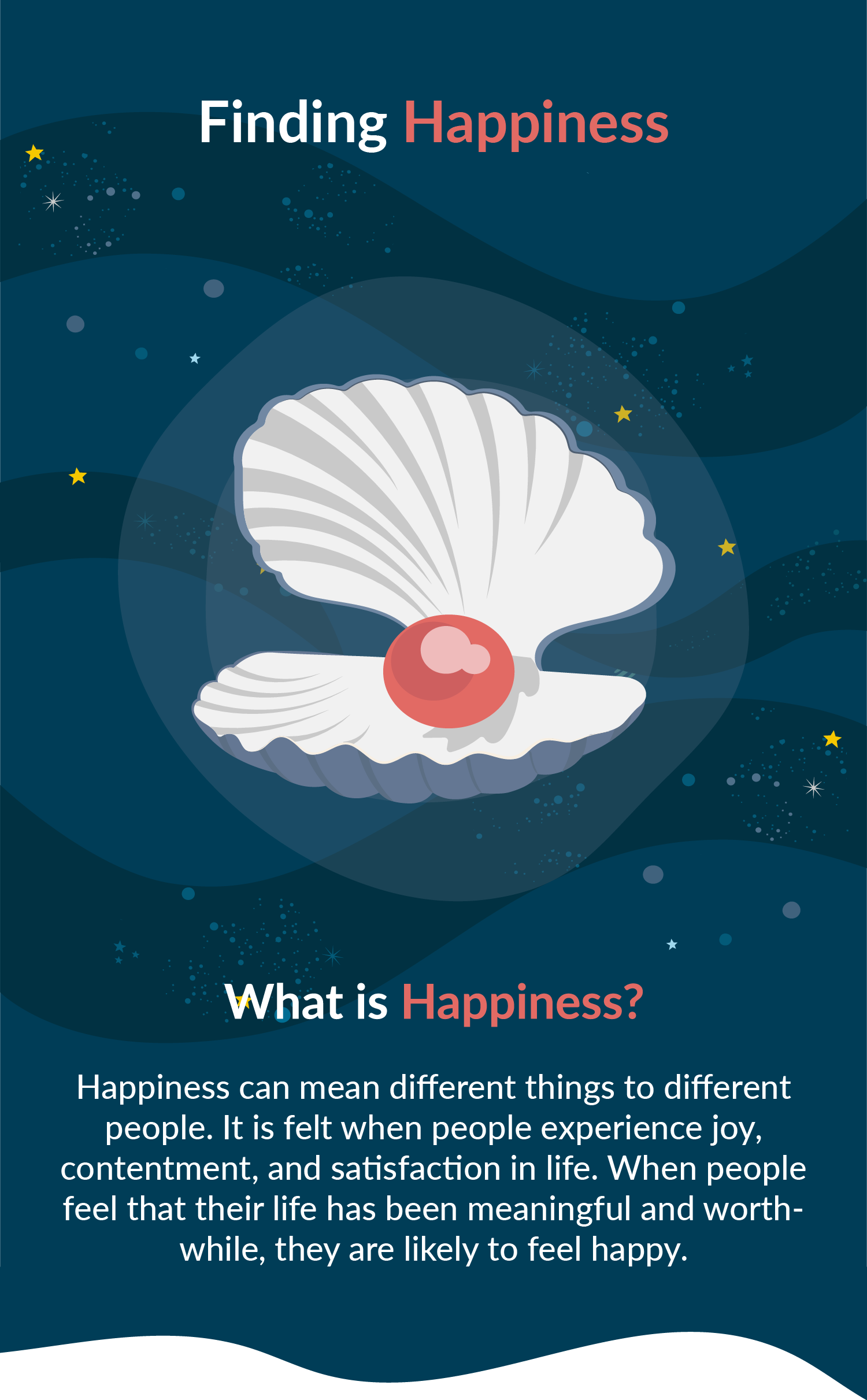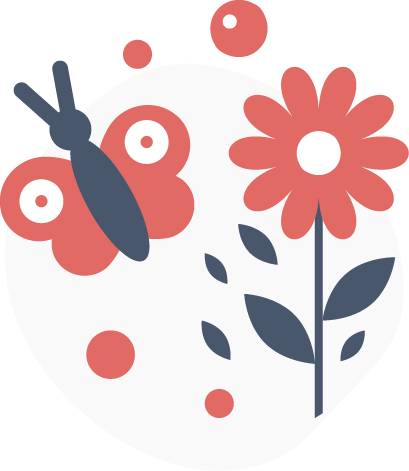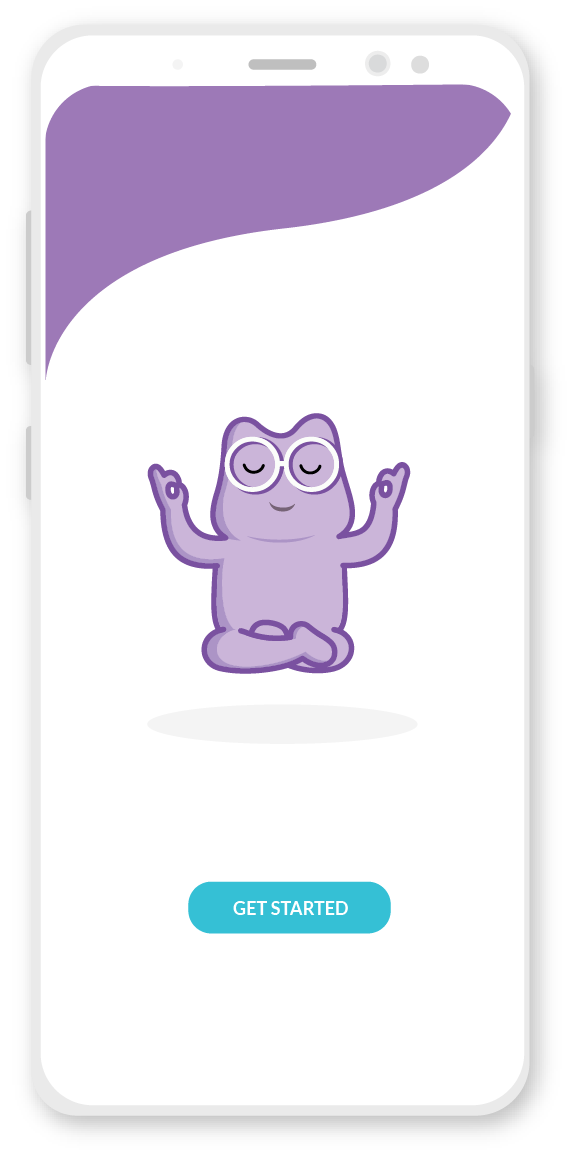

Why Try to Be Happier?

Happier Every Day...
The world can be a big, dark, and lonely place at times. Studies show that only 33% of people consider themselves to be happy. On the bright side, this number is on the rise - more and more people find themselves becoming happier every day.
Physical Benefits
Studies show that people who are happier live longer and healthier lives. They have better immunity against chronic illnesses and are less likely to experience body pain.
Emotional Benefits
Happier people have a more optimistic outlook - they are able to find the good even in bad situations. This helps them combat stress, depression, sadness, and negative emotions.
Social Benefits
Happier people are more helpful, productive and creative. They are known to have more friends and to form healthier relationships. This equips them with a good support system.
What Makes People Happy?
Biological Factors
Happiness is affected by genes - in fact, studies show that 50% of happiness is driven by genetic factors. It is also influenced by levels of several chemicals in the brain, such as dopamine, serotonin, and endorphins.
Social Factors
People who have deep, positive, and healthy connections with others tend to be happier. Studies also show that those who contribute to the society and participate in volunteer work have higher levels of well-being and life satisfaction.
Personal Factors
Several personal factors affect the extent to which an individual feels happy. Research shows that commitment to leading a positive life, being mindful, having meaning in life, eating habits and lifestyle all correlate with one's happiness levels.
Strategies for Happiness
Building Strengths
Identifying and using one's strengths can help one perform better and build these strengths further. Identifying and overcoming weaknesses can help people feel happier too.
Practising Gratitude
When people express gratitude on a regular basis, they are able to train their brain to focus on the positive aspects of life. As a result, they are likely to feel more optimistic.
Nurturing Relationships
Human beings are social animals. Having healthy, satisfying relationships and a network of social support can help people face challenges in life and experience satisfaction.
Prioritising Self-Care
Self-care habits - like having healthy eating and sleeping patterns, focussing on new experiences, travelling and meditating - have been found to help people feel happier.
How InnerHour Can Help
The happiness programme in the InnerHour app acts as a personal guide for helping individuals to live a happier life.
By identifying areas for improvement with a quick assessment, the app builds out a personalised plan for each person.
Through engaging and interactive activities, users can learn critical skills - such as gratitude and optimism - and can practise them over time.
We also offer reading material to help users better understand the factors that influence their happiness.
The option to track happiness levels gives individuals actionable insights to increase their happiness over time.
What our users say
This app is really amazing. It will help you to be a happier version of yourself. You should give this a try and I promise its worth it.
Micole Shane Roxas01/12/2018
Great help towards wellness and happiness!
Virginie Bourguignon07/04/2019
Very interactive and it makes you smile from the word go! I just started using and im already loving it! Would recommend it to everyone.
Crislin Rozario31/12/2018
Has helped me restructure the way I think and truly helped make me happier. The guided breathing is really nice as well. definitely recommend. 😁
Marvelysa S27/01/2019
This app is great. It helps me set goals to manage my well-being. I am feeling so much better now than I was 2 months ago! Thank you!
A Google User09/01/2019
I recommend inner hour to anyone and everyone looking to find a little peace in a crazy world, even more so to those who don't have the time or the desire to ""pay for help"". download the app, even if you are the happiest human around. #5stars
A Google User09/01/2019
I love it, it makes me feel more confident, and comfortable in my day.
Susie Hochstetler02/03/2019
Wow! I am feeling totally refreshed and awesome from the activities i performed on this app. This app will let you incorporate good habits in your life. Thanks to its makers you did a wonderful job with the app.
Riyanka Mojumder26/02/2019
References
Bhattacharyya, M. R., Whitehead, D. L., Rakhit, R., & Steptoe, A. (2008, November). Depressed mood, positive affect, and heart rate variability in patients with suspected coronary artery disease. Retrieved from https://www.ncbi.nlm.nih.gov/pubmed/18941130
Davidson, K. W., Mostofsky, E., & Whang, W. (2010, May). Don't worry, be happy: Positive affect and reduced 10-year incident coronary heart disease: The Canadian Nova Scotia Health Survey. Retrieved from https://www.ncbi.nlm.nih.gov/pmc/articles/PMC2862179/
Papousek, I., Nauschnegg, K., Paechter, M., Lackner, H. K., Goswami, N., & Schulter, G. (2009, November 26). Trait and state positive affect and cardiovascular recovery from experimental academic stress. Retrieved from https://www.sciencedirect.com/science/article/pii/S030105110900235X
Positive affect and biological function in everyday life. (2005, October 06). Retrieved from https://www.sciencedirect.com/science/article/pii/S0197458005002769
Seligman, M. E., & Royzman, E. (2003, July). Happiness: The three traditional theories. Retrieved from http://pq.2004.tripod.com/happiness_three_traditional_theories.pdf
Zautra, A. J., Johnson, L. M., & Davis, M. C. (2005, April). Positive affect as a source of resilience for women in chronic pain. Retrieved from https://www.ncbi.nlm.nih.gov/pmc/articles/PMC2593933/






 InnerHour Tips
InnerHour Tips

